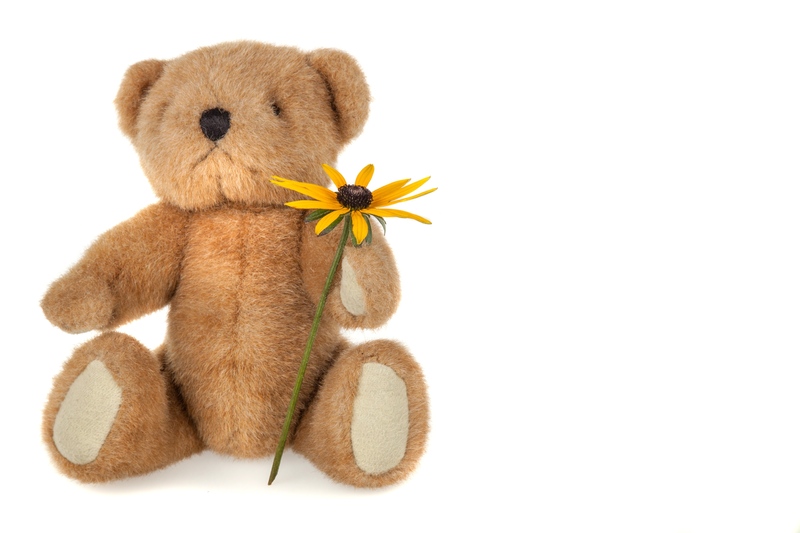Raising Eco-Conscious Kids Through Recycling: A Comprehensive Guide
Teaching kids about sustainability and environmental responsibility is more crucial than ever. One of the most practical and impactful ways to inspire environmental awareness in children is through recycling. By integrating eco-friendly habits at a young age, parents and educators can foster lasting values and nurture tomorrow's stewards of the planet. This guide explores effective strategies for raising eco-conscious children through the power of recycling.

Why Is Eco-Consciousness Important for Kids?
Children are tomorrow's decision-makers. Instilling an understanding of ecological responsibility early in life empowers youth to make informed choices, reduces waste, and protects natural resources. Here's why developing eco-awareness in kids is essential:
- Long-Term Impact: Early education leads to lifelong green habits.
- Environmental Stewardship: Kids learn that their actions matter in preserving the planet.
- Community Engagement: Eco-minded children inspire others, creating a ripple effect of positive change.
- Health Benefits: Clean environments contribute to healthier, happier children.
- Creativity and Problem-Solving: Recycling activities foster innovation and critical thinking.
Key Principles of Teaching Kids to Recycle
Guiding kids towards embracing eco-friendly habits doesn't happen overnight. It involves clear communication, practical experiences, and a positive attitude towards recycling. Here's how to lay a solid foundation:
- Lead by Example: Model consistent recycling behaviors at home, work, and in public places.
- Make Learning Fun: Use interactive games, songs, and crafts to engage children in recycling.
- Keep It Age-Appropriate: Tailor your approach to match your child's age and interest.
- Celebrate Success: Recognize and praise eco-conscious actions, no matter how small.
- Keep the Conversation Going: Talk about why recycling matters for the planet and future generations.
Simple and Effective Ways to Teach Kids About Recycling
1. Start With the Basics
Introduce the concept of recycling in simple terms. Explain how materials like paper, plastic, glass, and metal can be collected, processed, and transformed into new products. Use visual aids, such as books or videos, to illustrate the journey of waste and the benefits of reducing landfill.
2. Set Up a Kid-Friendly Recycling Center
Designate a recycling hub in your home that's accessible and easy for children to use. Label bins for plastic, paper, metal, and glass with big, colorful signs or pictures. Encourage your kids to sort their waste daily, making recycling part of their routine.
3. Turn Recycling Into a Game
Children are more likely to remember lessons that are enjoyable. Try games like:
- Sort-the-Recyclables Races: See who can sort items into the correct bins the fastest.
- Recycling Scavenger Hunts: Hunt for recyclable items around the house or at the park.
- Points for Eco-Friendly Actions: Create a point system for proper recycling.
4. Create Upcycled Crafts
Turn recyclables into art projects, such as bottle cap mosaics, newspaper hats, or tin can planters. Upcycling not only reduces waste but also inspires creativity and problem-solving skills.
5. Read and Watch Educational Materials
Seek out children's books, documentaries, and cartoons centered on environmental stewardship and recycling. Having relatable characters model eco-responsible behavior can leave a lasting impression.
6. Visit Local Recycling Facilities
Many communities offer tours of recycling centers or waste management plants. Witnessing recycling operations in action can deepen children's understanding and provide a real-world context for what happens to their recyclables.
7. Encourage School and Community Involvement
Support recycling initiatives at your child's school or within your community. Help them join green clubs, participate in cleanups, and advocate for eco-friendly policies. These experiences reinforce the value of teamwork and civic responsibility.
The Role of Parents and Guardians in Developing Green Habits
Modeling Behavior
Children mimic adult behavior. If you are diligent about sorting recyclables, reusing materials, and consciously reducing waste, your children will follow suit. Talk openly about why you recycle and involve your kids in the process, making it a family activity.
Establishing Eco-Friendly Routines
- Make Recycling a Daily Ritual: Place bins in accessible areas and encourage your child's participation.
- Reduce Single-Use Items: Use reusable bags, water bottles, and containers. Allow your kids to pick out their own eco-friendly products.
- Compost at Home: Teach kids about composting organic waste and observe the process together.
- Minimize Food Waste: Plan meals together, store leftovers properly, and invent creative ways to use food scraps.
- Practice Responsible Purchasing: Choose products with minimal or recycled packaging and explain the importance of sustainable choices.
Effective Communication
Talk about environmental challenges, such as pollution and climate change, using language your child can understand. Answer their questions honestly and encourage curiosity. Help them connect local recycling actions to global change.
Recycling Beyond the Home: Expanding Environmental Education
Engaging With Schools and Educators
Collaborate with teachers and school administrators to integrate recycling education into the classroom curriculum. Volunteer for school recycling drives, initiate poster contests, or set up a "green team."
Community Programs
- Library Workshops: Many libraries hold sustainability-focused storytimes or craft activities for children.
- Neighborhood Clean-Ups: Join local clean-ups and recycling campaigns to teach children about the impact of collective action.
- Farmers' Markets and Eco-Fairs: Attend events that showcase upcycled goods and sustainable practices.
Global Perspective
Introduce your children to stories from other cultures about recycling and environmental care. Explore how different countries manage waste and promote sustainability. Nurture their sense of global citizenship.
The Benefits of Raising Eco-Conscious Children Through Recycling
When you cultivate green habits in your kids through recycling, you set them up for a lifetime of positive impact. Here are just a few of the advantages:
- Reduction in Household Waste: Families who recycle produce less garbage, conserving landfill space and reducing pollution.
- Savings and Resourcefulness: Upcycling teaches children to value what they have and find new uses for old items.
- Greater Environmental Awareness: Kids who recycle are more likely to care about conservation, energy use, and wildlife protection.
- Improved Academic and Social Skills: Eco-projects foster collaboration, scientific curiosity, and communication abilities.
- Contribution to a Sustainable Future: Each eco-conscious child brings us a step closer to a healthier planet for all.
Overcoming Challenges in Teaching Kids About Recycling
Empowering children to recycle isn't always easy. Some hurdles you may face include confusion over local recycling rules, lack of motivation, or initial resistance to change. Here's how to tackle those challenges:
- Stay Positive: Keep the tone encouraging rather than punitive. Mistakes are part of the learning process.
- Get Creative: If traditional lessons aren't catching your child's interest, pivot to hands-on projects or experiments.
- Clarify Guidelines: Provide clear rules about what can and cannot be recycled in your area.
- Build Community: Network with other parents and educators to share tips, resources, and inspiration.
Inspiring Stories: Kids Making a Difference With Recycling
Across the world, young environmentalists are showing that age is not a barrier to eco-conscious leadership. From organizing recycling drives to inventing new upcycled products, children contribute creative solutions to environmental challenges. Leverage these real-life role models to inspire your own kids.
- Melati and Isabel Wijsen: These Balinese sisters launched a youth-driven plastic bag ban campaign that transformed local law.
- Ryan Hickman: At age 3, Ryan began recycling cans and bottles, later founding Ryan's Recycling Company to promote awareness in California.
- Lila Rose: Lila developed classroom presentations and a website to teach other kids about the importance of recycling e-waste.

Recommended Resources for Green Families
- Websites: EPA's Recycle City, National Geographic Kids Environment, and Kaboom: Green Ways to Play
- Books: "Why Should I Recycle?" by Jen Green, "Compost Stew" by Mary McKenna Siddals
- Apps: Recycle Coach, iRecycle, and JouleBug
- Local Workshops: Check with your city's waste management or parks department for hands-on events
Conclusion: Shaping a Sustainable Future Starts at Home
Raising eco-conscious kids through recycling requires patience, creativity, and a genuine commitment to a healthier planet. By making recycling a joyful, accessible, and integral part of family life, you empower the next generation to value resources, think critically about their choices, and act responsibly. Together, we can ensure a sustainable future--one recycled bottle, can, or box at a time. Let's nurture the environmental champions of tomorrow, starting with the small steps we take today.